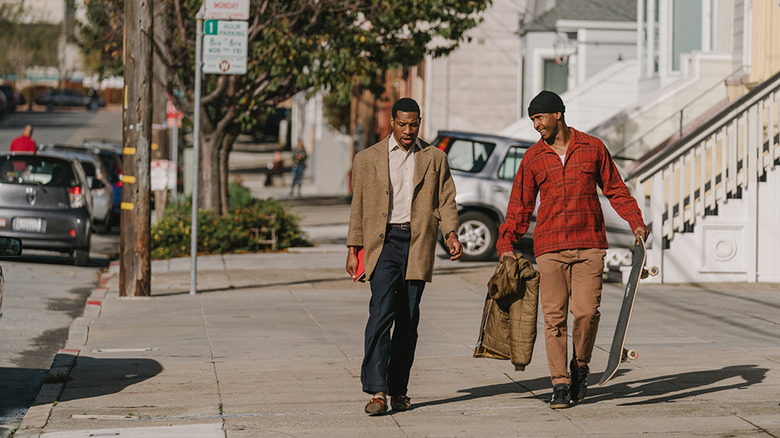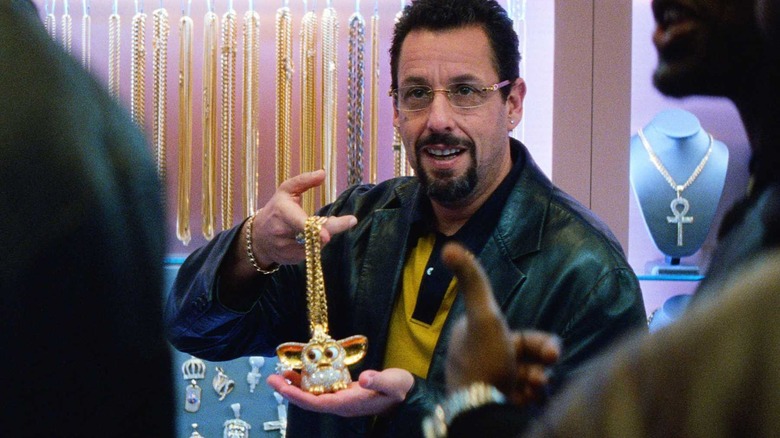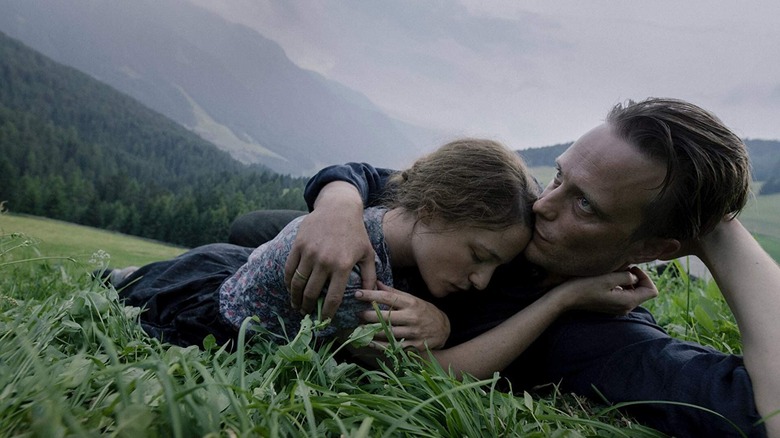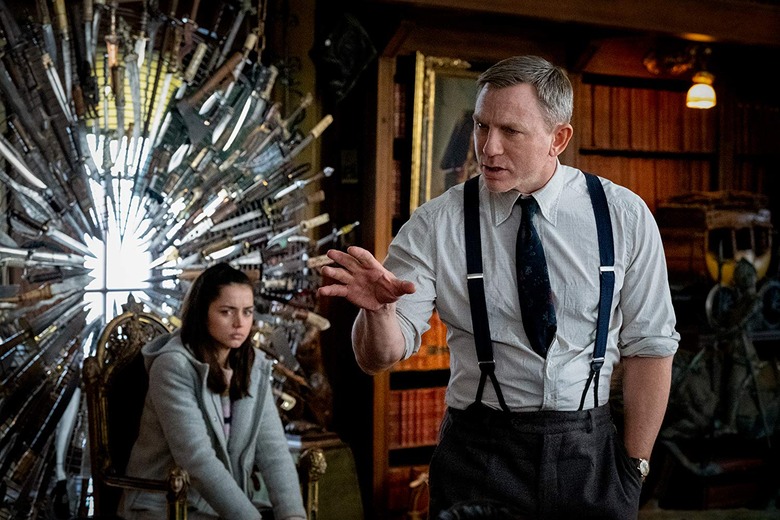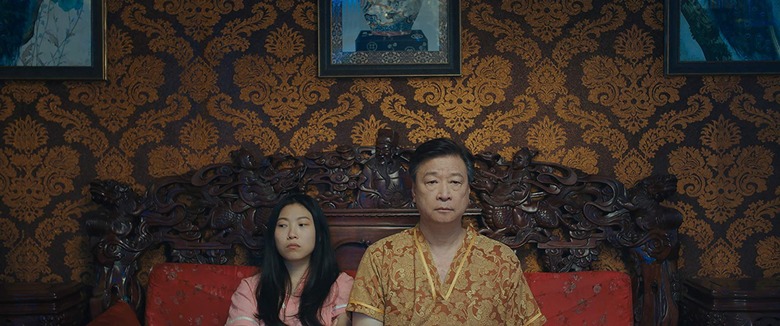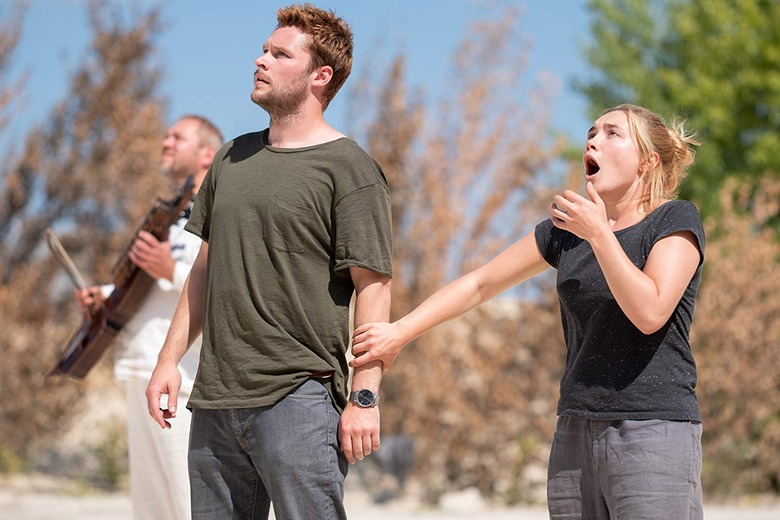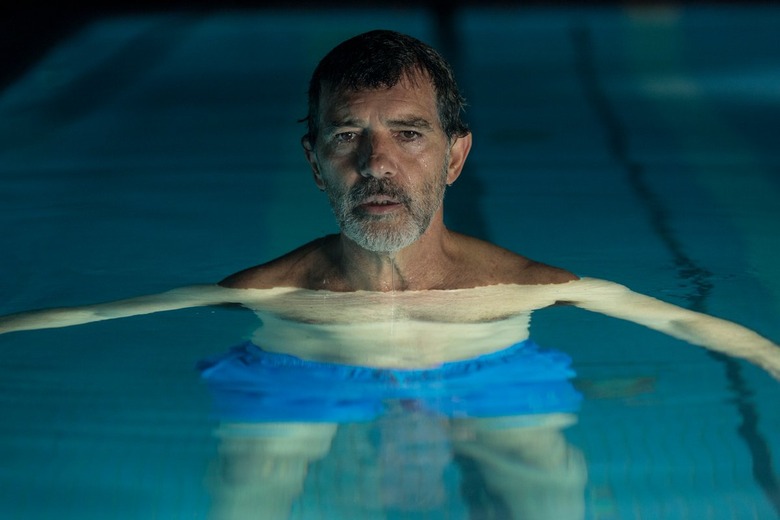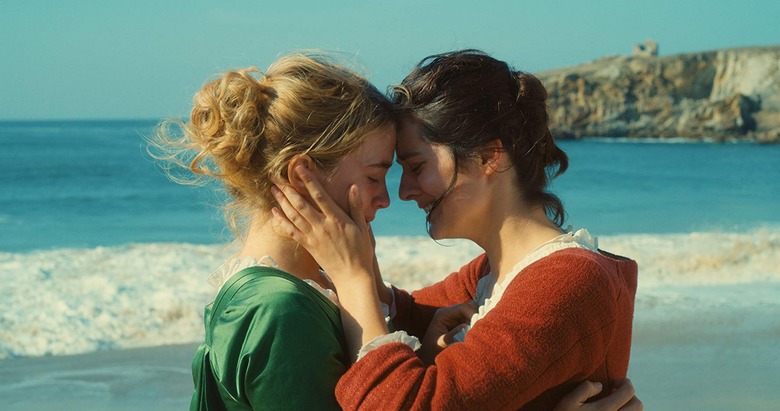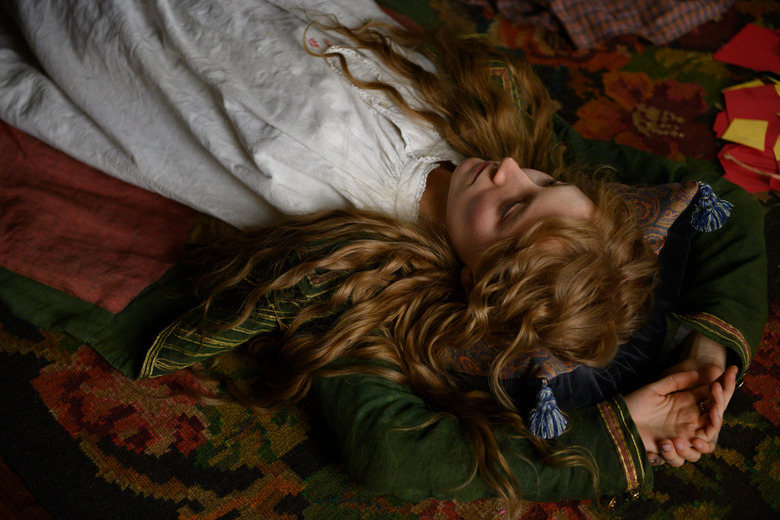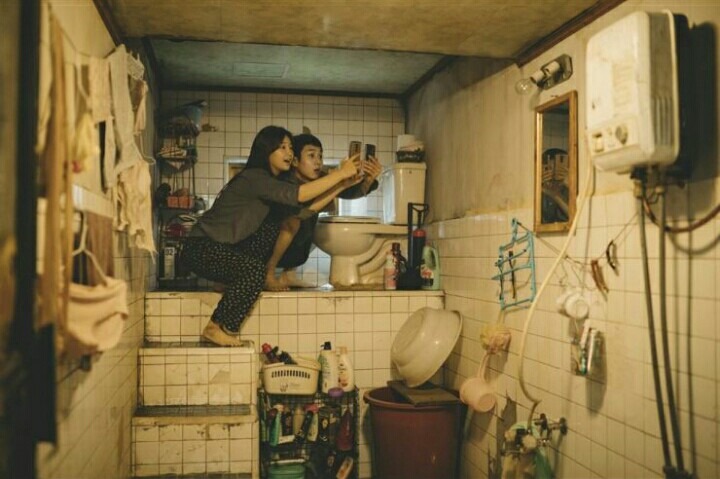Hoai-Tran Bui's Top 10 Movies Of 2019
I don't remember a year where I struggled more to narrow down my favorite movies. It's almost ridiculous how jam-packed 2019 was with excellent films: from stunning debut features to contemplative epics by masters of their craft, to character dramas that plunged into unimagined depths, to cozy family fables that unexpectedly cut like a knife, to the embarrassment of riches floating in from abroad. Movies had so much to say, and they said it brilliantly.
These are just a few of my favorite things, but even at the last minute I was shuffling this list around. So in honor of those movies that almost made the cut, here are my honorable mentions: The Irishman, The Lighthouse, Us, Ad Astra, Marriage Story, Varda by Agnes, John Wick Chapter 3, Transit, Long Day's Journey Into Night.
With that, here are my top 10 movies of 2019.
10. The Last Black Man in San Francisco
An elegiac love letter to a city that is quietly disappearing, The Last Black Man in San Francisco is a stunning debut from Joe Talbot, based on the real story of his childhood friend Jimmie Fails, who stars in the film. Fails stars as young man fixated on the old Victorian home that his grandpa built in the heart of San Francisco, now home to an older white couple who are baffled by Jimmie's frequent visits to repair the house. The Last Black Man in San Francisco is a movie rich with meaning: it wants to talk about gentrification, about masculinity, male friendship, and the family legacies that we bear. But rather than feel overcrowded with its dense themes, The Last Black Man in San Francisco lets you drift along aimlessly with Jimmie and his best friend (Jonathan Majors) as they ponder the meaning of home. One of the most beautiful films I've seen this year, The Last Black Man in San Francisco shows the city through the eyes of the people being pushed out of it who, despite their dire circumstances, still see San Francisco as a thing of vibrant, incandescent beauty — chipped paint and rotting wood and all.
9. Uncut Gems
My gems are cut and my entire body wracked with anxiety. The Safdie brothers give a grimy New York character study the scope of a Greek tragedy with Uncut Gems, the first film to give Adam Sandler his first proper due in more than 15 years. Sandler is a force to be reckoned with as a charismatic jeweler and gambling addict Howard Ratner, a pure force of chaotic destruction who nonetheless can't stop pulling people into his orbit. Dogged by loan sharks sent by his brother-in-law (Eric Bogosian), Howard gets his hands on a rare black opal that he intends to put up for auction. But when he shows it to Boston Celtics player Kevin Garnett (playing himself), the NBA superstar becomes obsessed with the jewel and asks to keep it for a day, kicking off a saga of missed meetings and unrelenting tension. Howard doesn't help his case by constantly placing bets with money he doesn't have, and living like he has a death wish. This is a saga of a man always chasing the edge, no matter the cost to his own well-being or peace of mind. It's a fast drive off a cliff, one that you can't look away from.
8. A Hidden Life
I have never been much of a spiritual person, but I am convinced that A Hidden Life is the closest thing to experiencing spirituality as can be. Terrence Malick has been playing around in the cosmos for so long that I wondered if he had a grasp of the little people on Earth, and A Hidden Life proves that he does. Based on the true story of Franz Jägerstätter (August Diehl), an Austrian farmer who refused to fight for the Nazis in World War II, A Hidden Life is a slow, languorous, and immensely affecting war film that manages to not include a single scene of war. A stirring testament to the power of human conviction, Malick has made a film that captures the majesty of the human spirit and all it can achieve.
7. Knives Out
With a cast as star-studded, a script as sharp, a theme as timely, and a film as stylish as Knives Out, how could it not be one of the best movies of 2019? Rian Johnson's Agatha Christie-inspired whodunit that toes the line between subversive satire and murder-mystery love letter, Knives Out is a delightfully energetic and unpredictable magic trick of a movie. After the supposed suicide of a wealthy patriarch (Christopher Plummer), a renowned private detective (Daniel Craig) is called in to investigate the dead man's extended family. Every scene is chewed to bits by the phenomenal cast — for whom no role is too small — most of all by Craig, who is having a blast as the eccentric detective with the most deep fried of Southern accents and a fondness for doughnut metaphors. But the breakout and emotional anchor is Ana de Armas, who plays the deceased patriarch's kind nurse who gets dragged into the family's entangled web of schemes. Johnson elevates the frothy character actor elements with a highly topical story that at times can be a little on the nose, but makes for a whodunit that is a little more nutritious than a doughnut hole.
6. The Farewell
I know a lot of people were dissatisfied with Crazy Rich Asians, which was touted as the watershed movie for Asian-American representation in Hollywood, because of its overly broad appeal. But where Crazy Rich Asians goes as broad and as big as possible, The Farewell goes specific and small. And in achieving that perfect note of cultural specificity, it manages to be both incredibly intimate and universal. Based on the true story of director Lulu Wang, The Farewell is a story of cultural and generational clash through the perspective of Billi (Awkwafina in her dramatic breakout role), a Chinese-American woman who learns that her grandmother Nai Nai (Zhao Shuzhen) is dying. Shocked to learn that, in keeping with Chinese custom, her family is keeping the truth of the illness from Nai Nai, Billi joins them in China under the pretense of attending a wedding so that they can spend one last time with Nai Nai. Quietly devastating and devastatingly funny, The Farewell is a candid and complicated portrayal of grief and the difference between how the east and west process that grief. The Farewell doesn't ask you to understand the choices by its characters. But it does allow you to live with them as they live with those choices, and feel every flicker of turmoil and sorrow.
5. Midsommar
Ari Aster's follow-up to Hereditary is the world's worst break-up movie. Disarmingly funny and surprisingly cathartic, Midsommar is perverse pastoral nightmare that follows the slow breakdown of a toxic relationship between the insecure Dani (Florence Pugh, in an all-timer of scream queen performances) and her gaslighting boyfriend Christian (Jack Reynor). Reeling from a family tragedy, Dani invites herself on a trip with Christian and his frat bro friends to see the rare midsummer festival in a secluded Swedish village. But this eternally sunny village's rituals soon take a turn for the violent. It's horror by the harsh light of day — with the abundance of nervous chuckles and bursts of bloody carnage lending to the film's freakish nature. But, Midsommar argues, the real horror and the most insidious violence is in a bad relationship, and the people who refuse to share your grief.
4. Pain and Glory
Subtlety is not the medium in which Pedro Almodovar operates. Every Almodovar movie is a glorious shout to the world — a cry of elation, frustration, desperation, or regret. Pain and Glory, Almodovar's semi-autobiographical masterwork, that cry starts out softly at first, barely heard amid the Spanish auteur's contemplative interrogation of memory and creation. But that cry grows until it fills the frame with emotion, threatening to overflow. Antonio Banderas gives a tour-de-force performance as aging film director Salvador Mallo, whose regrets and mistakes are literally written all over his body — in surgical scars, in the pain in his joints, in his constant migraines. Restless to get back to work and resentful of the body that has betrayed him, Salvador finds himself returning to the sunny days of his childhood, when the summers smelled of piss and cinema was a grand escape for him. Pain and Glory is a circular film about the indelible moments in life that spark creativity, and vice versa.
3. Portrait of a Lady on Fire
How do you condense 2,000 years worth of love poetry into a two-hour film? Celine Sciamma somehow figured it out with her ravishing lesbian romance Portrait of a Lady on Fire, one of the few movies that unironically deserves the descriptor "poetic cinema." If to be truly seen is the ultimate form of love, Portrait of a Lady of Fire is love incarnate. Every frame is a work of art, every glance loaded with unspoken emotion and desire. Taking place in 1770, the film follows a female artist (Noémie Merlant) who is commissioned to paint the wedding portrait of a mysterious daughter (Adèle Haenel) of a French countess, under the pretense of being her walking companion. A close friendship blooms into attraction, and the two share a searing romance for the ages. Portrait of a Lady on Fire is that low burn of desire in your stomach and the choked-back tears in your throat — mythic and epic and intimate all at once.
2. Little Women
Greta Gerwig has crafted a film that I want to wrap myself up in and never leave. Little Women has always held a special place in my heart, but Gerwig has injected Louisa May Alcott's timeless classic with a fresh modernity that makes all of the characters feel beautifully, painfully human. Following four wildly different sisters growing up during and after the Civil War, Little Women tackles all the joys and sadness of that awkward transition to adulthood with an inventive non-linear structure that shakes up Alcott's well-known story. But to say that Gerwig gave Alcott's creaky 200-year-old story a shiny new coat of modern feminist paint would be a falsehood: the directly simply hones in on the incredibly progressive elements of the story and shines a spotlight on them: from Jo's (Saoirse Ronan) literary ambitions and dreams of independence, to Amy's (Florence Pugh) savvy navigation of a society that is stacked against women. Anchored by award-worthy performances from the entire cast and clever directorial flairs that reward you upon each rewatch, Little Women is a rapturous portrait of humanity in all its messy, wonderful details.
1. Parasite
Bong Joon-ho's genre-defying masterpiece is a pitch-black exclamation point on which to end this year of "eat the rich" films. But rather than celebrating the humiliation of the wealthy in a grand feast of schadenfreude, Parasite pulls the wool from over our eyes to show that when you eat the rich, you're still a cannibal. At once a comedy, a razor-sharp social satire, a twisted fairy tale, and a Hitchcockian suspense film, Parasite defies categorization and defies comparison. Bong expertly interweaves a tale of two families, one insanely wealthy and one impoverished, as the poor Kim family cons their way into the employ of the rich Park family. Then, the film pulls a narrative sleight of hand that upends all expectations. Filled with nonstop twists and turns, Parasite is the rare arthouse film that can be enjoyed as an entertaining surface-level thriller — but once you look underneath the surface, the horrors of capitalism and class division become hideously clear.

